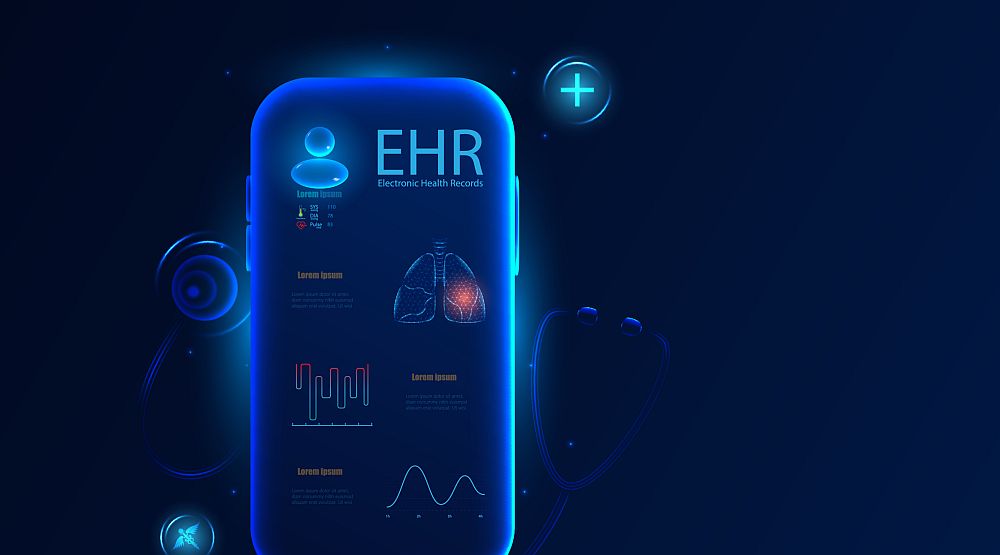Nowadays, healthcare software is a must-have for providers to stay efficient and provide the highest quality patient care. Streamlined tasks, reduced error risk, higher efficiency, better security – the list of benefits such software brings is very long, and with future development, the potential for even more innovations is limitless.
However, the complexity of healthcare apps and systems makes them more challenging to develop and implement, often requiring specialized knowledge and extra skills to ensure the product works as intended. What’s more, because health-related technology can affect people’s lives directly, developers have additional responsibilities to think of. Let us look at some of the problems that come up when making software for healthcare.
Challenges in Developing Healthcare Software
If you have never worked on health-related apps before, you may be unaware of how specific aspects of the healthcare industry affect the development process. Various standards have to be met, and some challenges are unique for healthcare custom software development.
Compliance with regulations
The first difficulty that comes to mind is compliance. As we have stated before, the nature of the healthcare field is such that it is strictly regulated, with many different laws and regulations imposing the rules that developers must follow. Each country has its own legislation, and when working on software intended for the international market, it is crucial to know and understand all the nuances of each regulatory framework.
Some requirements may be high and costly to adhere to, such as data privacy laws like HIPAA in the US. In general, the more strict the rules, the more time, effort, and resources will need to be invested in the final product.
Scalability issues
Hospitals, clinics, and other medical facilities see a large influx of patients. One instance of such a situation was the recent COVID-19 pandemic, which put a big strain on the healthcare system across the globe. Such unexpected patient growth can highlight how important scalability is in healthcare software—in case of a need for rapid expansion to accommodate a sudden increase of people needing care, a healthcare facility cannot wait for a new version of their software to be developed and implemented. Solutions that are in place have to do their job even in such conditions.
Having a scalable and easily adjustable system at work allows healthcare facilities to quickly adapt to challenges that may arise from an unexpected (or, sometimes, expected but unwelcome) event. Therefore, developers have to keep in mind that hospitals and clinics may suddenly need to accommodate more data than usual, and the systems they use will need to be reliable enough to handle this increased demand.
Cost Effectiveness
Software for the medical field and healthcare industry is often on the more expensive side. Its complexity influences the price, and frequently, all the features that are needed for optimal functionality can drive up the cost. Cutting costs when developing healthcare software can be disastrous, as any feature or functionality that is built on a budget may be compromised and end up causing more harm than good.
It is crucial to remember that human lives and public health are what is at stake here, so hospitals, clinics, and physicians in general usually prefer to invest in top EMR systems, quality medical software, and reliable technologies. A cheap, hastily developed software solution may lead to inefficiencies and errors, and will likely have poor reviews.
Interoperability and integration
When developing a healthcare software product for more than one local market, it is wise to consider its integration capabilities. Some operating systems or devices are more popular in certain regions (like Apple computers in the US or Android devices in eastern Asia).
In order to ensure interoperability and easier integration with existing systems that might be in use in different places, developers should consider using widely accepted standards, especially considering the character of their software. This will ensure that facilities can integrate the software seamlessly into their existing systems, regardless of location.
Accessibility
Healthcare software is not only systems used by clinics and hospitals, but also different apps that can be accessed by patients and often, their caregivers. This generates a need for developers to prioritize accessibility in their software, as those using their product might come from different backgrounds, use different languages, or have varying levels of technological literacy.
It is also important to remember users with disabilities, as they are an important demographic in the healthcare software field. Making sure your app is compatible with screen readers, has a high contrast mode, or allows for voice commands can greatly improve the user experience for many people who would otherwise feel excluded.
Avoiding Potential Damage
When creating anything meant for use in healthcare, custom software development processes need to be carefully planned and executed to ensure the medical facilities and professionals get only the best, high quality solutions. There is no place for cutting corners or sacrificing quality for the sake of development speed when it comes to healthcare apps.
Developers need to be aware that their product can literally change people’s lives, and not only for the better, but – in cases of poorly designed or developed one – for the worse. Situations such as data leaks, glitches in the system, or inaccuracies in file management could have serious consequences for patients and medical staff alike.
Final Thoughts
Even skilled, knowledgeable developers may find it difficult to navigate all the challenges of healthcare software development. In some cases, the work may require extra effort and resources to be done effectively and for the final product to be fully secure, efficient, and compliant with regulations.
One way in which software developers can ensure that their work is up to par is by constantly educating themselves on current technologies, threats, and healthcare-related laws so that they can apply that knowledge to their development process. They can also seek feedback from healthcare professionals and end-users to better address their needs.
By staying proactive and well-informed, developers can deliver better software and have an easier time during the design, development, and implementation phases.




